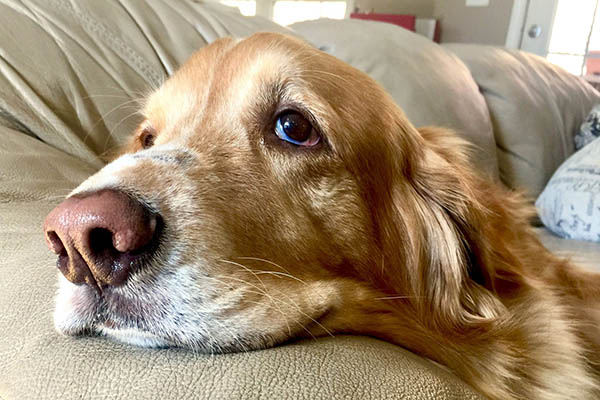Why are older people deciding not to have pets?
Why are older people deciding not to have pets?
It’s well known that pets are good for our wellbeing, can reduce our anxiety and stress, and offer love and companionship. But as we get older, we’re less likely to have a furry friend in our lives. The latest Household, Income and Labour Dynamics in Australia 1(HILDA) survey found just 11 per cent of Australian pet owners are aged 65 and over and that age group made up nearly 23 percent of those Australians who don’t own a pet.
University of South Australia’s Dr Janette Young, who has researched the positive health effects of pet ownership, says there’s a range of reasons for older people not owning pets. Dr Young says people’s biggest fear is what happens to their animal if something happens to them.
“People are making this careful and conscious decision which is actually largely focused on the welfare and wellbeing of animals,” she tells 2ABC RN’s Life Matters.
A person’s ability to care for their pet – both physically and financially – is another factor. Others just simply don’t want the responsibility anymore. This is what RN listeners told us about why they’re not keeping pets in their lives as they get older.
What if I die first?
Junita Henderson’s “little fella” Jasper has been with her for many years. He was neglected early in life, and Juanita saved him from death row. He’s now 16, and while Junita loves him, when he dies, she won’t be getting another dog.
“We see a pet as a many a year commitment,” she says. “I’ll be 75 in ten years and I just think by then it would just be too hard.” She also thinks about the prospect of leaving a pet behind when she passes, and the potential for it to be neglected by its new owners. But she’s thought about other ways to get her animal fix in the future.
Financially it’s tough!
Christine Pankhurst feels guilty she didn’t have the extra money for medical care when her dog Elli May became ill with a tumour. The pair spent 12 happy years “as a team” until Elli May’s death in September 2020. “She was a treasure,” Ms Pankhurst says.
“I couldn’t afford to do what needed to be done for her and so she was slowing declining and that was heartbreaking. The animal-loving retiree says she lives on a small amount of money. “We managed well, but you only manage and when something happens like that there’s no money for emergencies, there’s no money for getting operations done or anything like that.” Ms Pankhurst now gets her animal cuddles when visiting family and friends who have pets.
Free from all responsibility.
Many listeners pointed out the upside of not owning a pet: a life free from the responsibility of looking after others. “Having looked after others, including pets, my whole life, I now prefer having nothing and no-one to be responsible for,” says Christine Price, 74. She says she gets to “experience” her daughters’ dogs.
“My observation is that they’re a lot of trouble, and a lot of responsibility and an expense,” she says.
If you do want to keep pets…
One listener, Rosemary, suggests getting a pet that’s a bit less demanding than a dog or cat. “As I get older, I think I might ‘downsize’ from a dog to a budgie. Still lovely to have a pet and certainly easier to rehome if needed.” Others suggested adopting older pets.
Dr Young says for people who want a pet but face some challenges owning one, there are often local government programs that can help – like one that matches dog walkers with owners needing help or volunteers who pick up pet food. But she says more needs to be done to facilitate those relationships.
“We’re talking about things like animal fostering, about people sharing animals, talking about perhaps having almost like a dating service where people could actually be matched with … really busy people that don’t feel they have the time to actually have their own pet.” For people living in aged care facilities there are different hurdles. “I’ve got a dream about older people in communal aged care being able to foster animals because many of those people can’t have an animal living with them anymore,” Dr Young says.
“They have the skills in looking after animals, they understand them, and they want that connection.” Dr Young says as we age our world can become smaller, and pets can connect us with others or just give companionship.“Animals don’t judge us, they are just these gentle companions that engage with us,” she says.
“They are not part of our human world, and that makes them special. Humans are fantastic but animals give us something different.”
At the end of the day, the most important thing is to do what’s right for you – whether that involves a pet or not.
1https://pursuit.unimelb.edu.au/articles/hilda-pets-and-australians-who-has-what
2https://www.abc.net.au/radionational/programs/lifematters/keeping-our-pets-as-we-age/12915650

